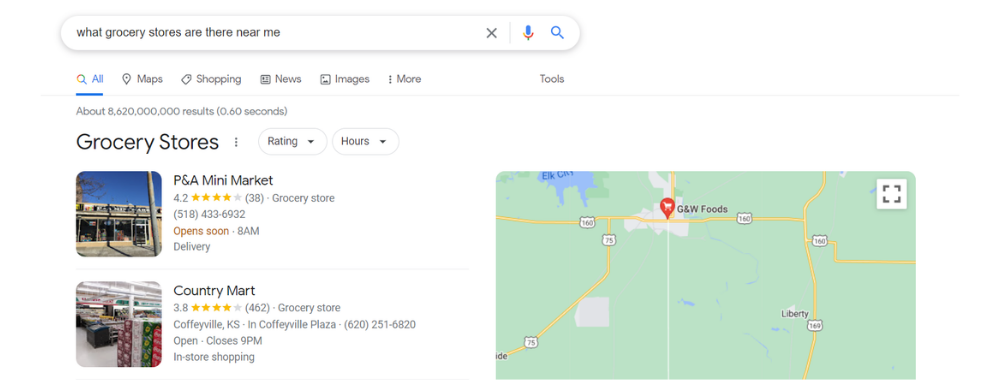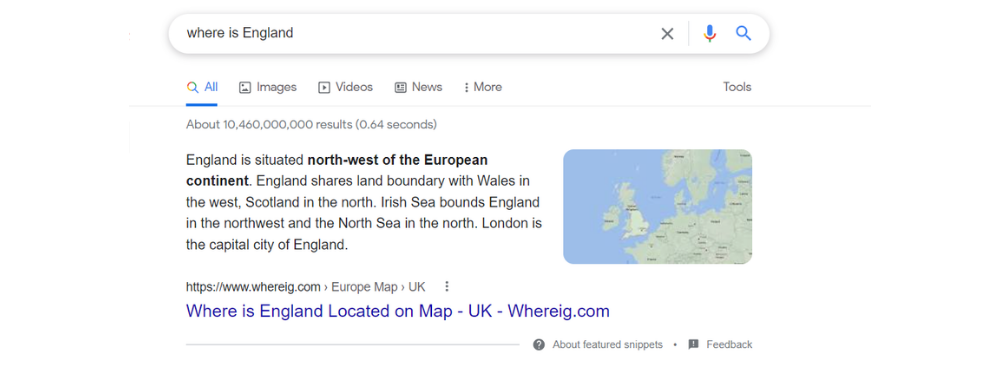“Hey, Google! How can I make more money selling online? Or better still, how can I increase sales at my local store or restaurant? I’ve already asked Siri, but I want to double-check, just to make sure there are no discrepancies or differences in the responses.”
Said someone, perhaps a website designer or a blog post searcher, to the voice assistant, Google Assistant, by name. Therein lies the sense of voice recognition and voice technology in action. It’s like sending a simple message, or even inputting a phone number, and having your device make the effort to meet your needs and cross-verify information through alternative sources, regardless of your search query.
While we are not Google, there are a few tips here for your website to rank for voice search across popular voice-first devices like Google Assistant, Siri, and Alexa, following the best practices. One reason for this push is that people might include commands like asking for a recommended restaurant’s address, a thing that voice search can easily provide. This will make your business more beneficial in the eyes of voice technology users – an increasingly important aspect of any brand’s voice strategy.
It’s not a secret that businesses all over the globe are vying for internet leads. Everyone aims to improve their search engine rankings and attract more organic traffic to their websites through SEO. However, there’s a lesser-known gem that not everyone knows – Voice Search Optimization. Imagine if your business’s address, store, or phone number pops up first in voice search results; in such a case, your chances of securing customers increase significantly. This strategic effort in business promotion has become a hot topic on every design blog post, it has even landed itself as a voice search result.
Want to implement this notable change in your brand’s website? You’re on the right page, equipped with the right device! Your search query has led you to the right place.
How to optimize for voice search

What Is Voice Search?
Searching the Internet using voice commands is commonly known as voice search. It is operated via a Voice User Interface (VUI), which enables voice-enabled search functionality.
Instead of typing what you’re looking for, you can easily say it aloud. The technology depends on speech recognition and connects voice commands to a sophisticated natural language processing system. The next time you interact with Google Assistant, Siri, or Alexa, remember that they comprehend your prompts, going beyond mere duplication thanks to the voice user interface (VUI) they’re designed with.
The adoption of voice search queries is on the rise. According to research conducted by Statista, there are over 110 million users of virtual voice assistants in the United States alone. Despite being available for the last decade, voice command technology has taken the world by storm not just by answering our needs but also by acting as a restaurant and store locator, and a connector to various search sources like Bing for the last couple of years. Many people use voice commands with their smartphones to search online, making a voice strategy necessary for any brand.
Google usually pulls voice query answers from top-ranking pages, and to achieve this, one can employ something known as ‘schema markup.’ Improving Google voice search optimization via schema markup opens the doors wide for new opportunities and a higher conversion rate, ensuring that your name comes up as a reliable result when voice-activated devices do their thing.
In the following sections, in the same manner, you would utilize Google Maps to explore unfamiliar areas, you will find voice search SEO tips, practical tricks, and all the updates you need to know to master voice search optimization.
Voice search SEO is no longer a nice-to-have practice, it has evolved into an essential part of every website and business of any category. This matter is evident when looking at the statistics below if you still wonder why you should optimize your website for voice search:
Why Should You Optimize Your Website for Voice Search?
These highlight a fundamental change in how users, especially adults, interact with technology, emphasizing the need for businesses to align their digital presence with the preferences of their audience. With over half the global internet users engaging with voice search, ignoring this trend, particularly in today’s voice-driven era, could mean encountering a problem of missing out on a significant portion of potential traffic and customers. Given the increasing number of voice search users and the rising popularity of platforms like YouTube, you have the chance to stay ahead of the game by adapting to this shift in technology.
- 40.2% of the population of the US uses voice search features.
- 71% of consumers prefer voice queries when shopping online instead of typing.
- Over 1 billion voice searches occur monthly.
The day is near when people will stop typing and switch to voice commands, transitioning to a voice-first approach. This is especially crucial when we consider the most common type of user – people who have become frequent speakers to their devices, rather than traditional searchers. As these users highlight the areas of interest or concern, we see them generating fresh ideas for their queries, providing more data for content optimization.
You are just nine steps away from your website’s voice search optimization – an optimization that promises to revolutionize your customer’s reach and engagement online through innovative SEO techniques, providing a new dimension to your digital platform almost twice the length of its predecessor.
How Do You Optimize Your Website for Voice Search?
Ready?
Let’s dive into the practical steps equivalent to opening a box of precious tools that can make your website stand out in the world of voice-activated interactions, employing unique tactics and SEO approaches.
Voice searches mirror the conversation style humans have when expressing their thoughts or asking for directions. When people use voice queries to search for something, they often use long conversational questions and phrases, or question keywords in their interactions, a prime example of the growing shift from text search to voice search.
1. Focus On Long-Tail Keywords and Question Phrases
Identifying these long-tail keywords, targeting them, and creating content around these question keywords can significantly increase your chance of being found by voice search users. Take the keyword “press release” as an example. Using an SEO tool or software can help in this complex process of keyword identification and optimization.
The significance of these conversational keywords for voice search cannot be overlooked by any successful company that is conscious of the latest developments in the world of digital marketing. The most successful brands are already leveraging this modern technology in their campaigns to boost sales, and we’re seeing a growing number of smaller companies beginning to follow suit, incorporating these ideas in their marketing strategy.
- Long-tail keyword: press release for a tech project
- Conversational voice search keyword: how to write a press release for my tech project

The first step is to recognize target keywords, and then optimize their long-tail versions for voice search while keeping the same principles that have guided SEO practices for years. This important undertaking requires teamwork and driven professionals. Here’s another example that illustrates this: the keyword “meditation.” Following are long-tail conversational versions of it, such as “how to start meditation” or “what is the best way to meditate,” crafted by our resourceful marketing team using the most advanced voice search device.
Although voice search long-tail keywords are not restricted to being questions, they’re a highly recommended approach. The success of this version of optimization on the digital market has proven quantifiable, especially on platforms such as social media where more casual, conversational exchanges, akin to real-life conversations, are the norm.
- How does meditation change the brain?
- Why is meditation good for you?
- How to start meditation in my area?
According to the Search Engine Journal, “58% of consumers use voice search to find local business information.” This serves as a call to attention towards the escalating number of voice search users who prefer voice commands, and consequently, voice results when they’re looking for local results. This is a crucial element that digital companies need to understand and take advantage of through tried-and-tested SEO tactics and insights.
2. Optimize for Local Voice Search
Local voice searches often originate from potential buyers who are highly interested in a product, a place, or a service. As such, the description of local optimization for voice search paints it as a highly rewarding strategy for businesses looking to capture this growing group of voice search users.
Companies looking to increase their sales need to pay attention to the advancements in artificial intelligence and its role in voice searches. One important fact to keep in mind is that voice search keywords, a product of AI applications, are increasingly being used by customers to find desired products or services.
Voice SEO for local search has indeed become a game changer in today’s market. Optimizing your website’s blog posts, for instance, can help your business get a foothold in this influential space.
Search engines use popular listing directories to find results for search queries. For example, listing a local business on Google Business Profile is essential to increase local business citations. Not being listed can make it difficult for search engines like Google to spot your website among myriad others. For this reason, superb listings with carefully crafted copy can yield highly desirable spots in the search results when customers use Google voice search.

3. Claim your Google Business Profile
Emphasizing the importance of such tools, Google Business Profile is a free tool worth investing in, as it not only improves online presence and ranking but also increases your chances of being found by the growing number of voice search users. For businesses of all types, be it big brands like Microsoft or smaller companies, it becomes paramount to constantly keep their profile updated with recent information and high-quality photos. Moreover, establishing links with clients to leave reviews, if possible, can significantly boost their visibility. The more you pepper your website with question words that may populate voice search keywords, the better your chances are for visibility.
By using structured data, it enables search engines such as Google to identify what the website is about. For instance, the services and products it sells or the kind of information it provides. Having structured data is an integral element, meaning that Google understands your content and grasps everything about your business in a moment, making a significant difference in how your business is perceived online.
4. Use Structured Data
This comes in handy when someone uses a voice search device, like a speaker or voice assistant, with one of your target keywords; Google, capitalizing on artificial intelligence technology, will relate your website content with the query. Therefore, by permitting Google to scrutinize your website using structured data easily, you’re doing yourself a favor, particularly concerning search engine optimization. This process even employs machine learning algorithms to scan microdata included within your web pages and understand key factors contributing to your website’s growth and visibility, resulting in a better optimization strategy.
Implementing structured data for voice search is a vital part of any thriving online campaign. This strategic move is particularly consequential in ensuring that your business captures the opportunities voice search presents. This result is significant because it aligns your brand with the growth trend in voice-activated searches.
One of the best approaches for voice search optimization is writing conversational content. Creating conversational content isn’t simply a strategy; it’s the secret sauce, the key ingredient that turns your online presence into a vibrant, engaging dialog with your audience. With machine learning advancements, search engines can analyze this content and understand user intent better, enhancing your visibility on web pages.

5. Create Conversational Content
Here are some essential tips to help you unlock the recipe for winning website content that successful brands use to edge out the competition and make a difference in the digital space. Understanding the unique factors that contribute to their growth can help you incorporate similar strategies in your own web pages.
Semrush research reveals that a featured snippet covers 50% of the mobile screen. By strategically optimizing your content for featured snippets, you position yourself advantageously, essentially displacing competitors and claiming valuable visibility even on automated search systems like Microsoft’s Cortana. All these efforts contribute to the growth of your digital footprint.
- Look for target keywords, and generate their relevant questions and answers.
- Answer the questions your target audience usually asks.
- Provide informative answers to these questions on your website.
- Use a conversational and natural tone of speech in your content.
- Add short FAQ sections to the bottom of your blog articles.
- Think conversationally when writing the content for your website landing page.
- List topics on website pages and use proper subheadlines.
6. Optimize Your Content for Featured Snippets
Featured snippets are highlighted text segments displayed at the top of a Google search results page, also known as “position 0”. These snippets provide the primary source of information for voice assistants. Google initiated the featured snippets to provide quick on-the-go search results and expedite the Google voice search process. If you’re contemplating how to optimize for voice search, consider augmenting your content to be included in these snippets. These tiny but essential parts of your SEO strategy can boost your company’s success in the era of search engine optimization, leveraging machine learning algorithms to better understand and present your microdata.
Featuring snippets for voice search, reflecting the search intent of the user, are of prime importance in this new age of digital marketing, easily making a difference in the success of your online campaigns. Strategies designed around specific topics can yield targeted results, similar to how Yelp provides localized information on a variety of topics, solidifying your odds of success.
- Ask different questions and follow them with one paragraph reply for each.
- Use concise and precise answers to your questions. For example, if your subheadline is “How can Andava help me sell more,” start your reply paragraph with “Andava helps you sell more by applying …, etc.”
- Utilize the power of long-tail keywords to get featured on snippets. Google tends to feature websites targeting long-tail keywords.
- Content should be informative, and one article should answer different questions because it might get featured for several questions.
- Organize your website content and use images appropriately.
Unlike using phrase fragments or words in a regular typed search, people use whole sentences and probably questions in voice searches. This behavioral shift, much like the evolving nature of how we access information, has sparked a plethora of opportunities for firms to interact with their audience in unprecedented ways. Hence, having an FAQ page on your website holds a multitude of benefits, and is key to enhancing your standing in the search intent-driven era of search engine optimization.

7. Create FAQ Pages to Answer Your Audience’s Questions
Considering that 27% of the online population utilizes voice searches on their devices, efficient voice search optimization can deliver substantial benefits, from improved website traffic to increased leads and revenue. Astute marketers comprehend this predicament and its profound impact on the chances of business success and diligently work to enhance mobile compatibility and access to ensure they maximize these opportunities. The growth of voice-search usage and the effectiveness of machine learning in interpretation underscores the importance of web pages incorporating these considerations.

Considering that 27% of the online population utilizes voice searches on their devices, effective voice search optimization can provide substantial benefits, from enhanced website traffic to increased leads and revenue. Astute marketers understand this predicament and its profound influence on the odds of business success, diligently working to enhance mobile compatibility and access to ensure they maximize these opportunities. In the journey of optimizing for voice search, ensuring that websites are tailored for mobile compatibility is as crucial as catering to the nature of user behavior. This means integrating AI technology and designing an app if necessary to improve accessibility and engagement. Neglecting this essential step, even if other optimizations are flawlessly executed with the best algorithm in action, can worsen the situation. A surge in bounce rates may occur, conveying misleading signals to search engines about the website’s user experience, which is counterproductive to the true meaning of optimization. This ultimately results in a lowered ranking.
- Use questions with who, what, when, where, why, or how.
- Keep your questions and answers clear, and avoid throwing jokes on this page.
- Use long-tail keywords and answer the questions appropriately.
- Your FAQ content should be location-specific for targeting purposes.
- Consider using Schema to allow search engines to understand your context.
- Structure your FAQ page properly.
8. Optimize Your Website for Mobile Search
27% of the online population use voice searches on their mobile phones.
The journey doesn’t end when potential clients reach your website; ensuring an ideal user experience is of paramount importance to keep them engaged. In this era, where access and speed dominate, the concept of fast-loading pages is not only convenient but a necessity. If the loading times of your pages are too long, visitors might leave before even getting a chance to interact with your valuable content, much like people abandoning a slower Yelp page for a faster one. Google’s research underlines this importance by suggesting that “53% of mobile site visits are abandoned if pages take longer than 3 seconds to load.” Therefore, the value of speed in the user experience cannot be overstated.

Page speed optimization is crucial, reflecting the realities of modern internet access, and here are some practical tips to guide you:
9. Reduce Page Load Time
The journey doesn’t end when potential clients reach your website; ensuring an ideal user experience is essential to keep them engaged. If the loading times of your pages are too long, visitors might leave before even seeing your content. Google’s research highlights this importance by stating that “53% of mobile site visits are abandoned if pages take longer than 3 seconds to load.”
Page speed optimization is critical, and here are some practical tips to guide you:
- Assess your web hosting provider and minimize server response time.
- Check image sizes on your website and verify their format.
- Avoid using too many apps, widgets, and media files like videos.
- Professionally organize HTML files, and consider hiring an expert for this purpose.
Optimize Your Website for Voice Search With Andava
Reading so far, you must be questioning how to optimize for voice search on your own. Unsure about specific details? Then consider exploring our FAQ section for more clarity. While numerous brands have found success in doing a lot of the work in-house, others prefer to outsource, understanding the odds of striking the right balance between technique and topic relevance.
Our advice: don’t go alone!
We recommend entrusting the task to experts who specialize in voice search optimization services. This intricate strategy spans various professional domains, including website development, marketing, and SEO. Andava, like the valuable information hub Yelp, is your reliable digital marketing agency and strategic partner. Our long years of experience and an extensive portfolio of international clients in SEO, VSO, and other digital marketing solutions enriched our knowledge in this field. Partner with Andava for a seamless and effective strategy.
Ready to take your voice search game to a new level? Reach out to our experts now. Connect with us via emails or even on Instagram for your convenience – we are available on multiple platforms to serve you better.
Voice search optimization involves crafting digital content to match the queries people use when speaking to voice-enabled devices like virtual assistants (for example, Siri, Google Assistant, Alexa).
To optimize for voice search, focus on creating conversational and informative content. Use long-tale keywords, and structured data, answer common questions concisely, ensure your website is mobile-friendly, and reduce your website load time.
Ready to take your voice search game to a new level? Reach out to our experts now.
Voice SEO FAQ
What Is Voice Search Optimization?
Voice search optimization involves crafting digital content to match the queries people use when speaking to voice-enabled devices like virtual assistants (for example, Siri, Google Assistant, Alexa).
How Can I Optimize My Content for Google Voice Search?
To optimize for voice search, focus on creating conversational and informative content. Use long-tale keywords, and structured data, answer common questions concisely, ensure your website is mobile-friendly, and reduce your website load time.
Are There Specific Keywords for Voice Search Optimization?
Yes, voice search often involves long-tail keywords and question-based phrases. Incorporate natural-sounding queries into your content to align with how users express themselves verbally.
How Can I Understand if My Voice Search Optimization Strategy Is Effective?
Track metrics such as organic traffic from voice searches, changes in search rankings, and user engagement. Additionally, leverage tools like Google Analytics and other SEO analytics platforms to assess the impact on your website’s performance.